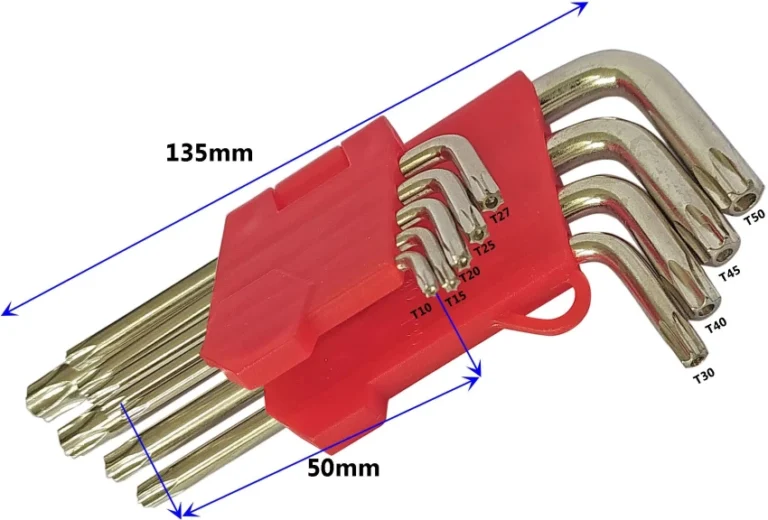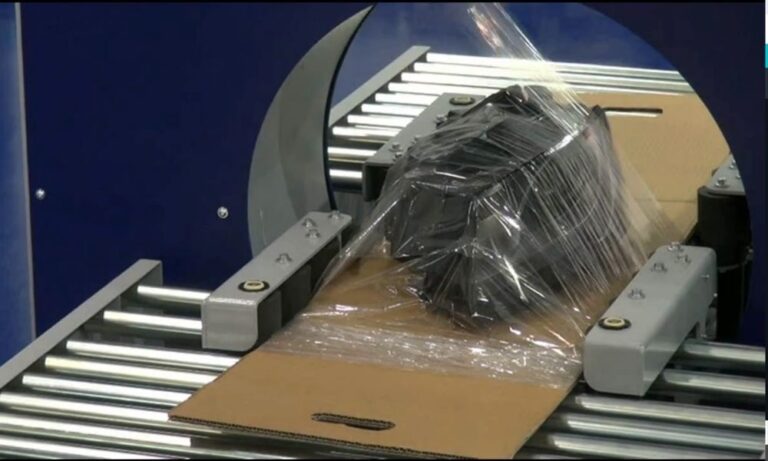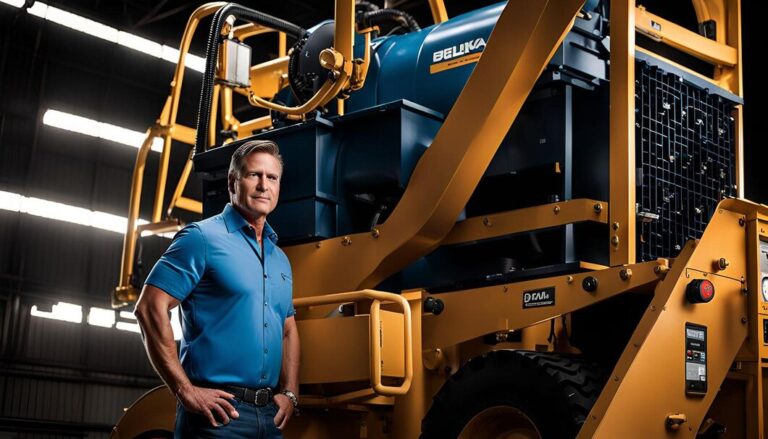Abraser: An Overview of Abrasion Testing Equipment
Are you curious about the world of abrasion testing equipment? Delve into the fascinating realm of abraders and discover how these innovative tools are revolutionizing material testing. From their intriguing history to cutting-edge advancements, we’re here to provide you with a comprehensive overview of abraser technology. Join us on this journey as we explore the ins and outs of abrasion testing equipment and uncover its wide-ranging applications in various industries.
Discovering Abrasers
Curiosity piqued by the term “abraser”? Abrasion testing equipment, known as abraders, are specialized machines used to evaluate a material’s resistance to wear and tear. These robust tools simulate real-world conditions, helping manufacturers assess the durability of their products. By subjecting materials to controlled abrasion processes, abraders provide valuable insights into their performance under repetitive friction and contact.
Abrasers come in various forms and designs, tailored to specific testing needs. From rotary abrasers to linear models, each type offers unique capabilities for conducting precise abrasion tests. With cutting-edge technology and innovative features, modern abraders ensure accurate results and efficient testing procedures.
Stay tuned as we delve deeper into the world of abraders uncovering their history, functions, and essential role in quality control processes across industries worldwide.
The History and Origins of Abrasion Testing
Have you ever wondered how the concept of abrasion testing came to be? The history and origins of abrasion testing equipment date back to the early 20th century when industries began seeking ways to measure the durability and wear resistance of materials. It all started with a quest for standardization in quality control processes, leading to the development of various testing methods.
Abrasion testing has evolved over time, driven by the need for precise measurements and reliable data. Researchers and engineers have continuously refined these techniques, paving the way for advanced equipment like abraders and wear testers that we use today.
Innovations in material science and manufacturing have further propelled the field of abrasion testing, making it an indispensable tool across industries such as automotive, aerospace, textiles, and more. As technology continues to advance, so does our ability to accurately assess product performance under abrasive conditions.
Taber Industries: Leaders in Abrasion Testing Equipment
Taber Industries stands out as a pioneer in the field of abrasion testing equipment, setting the standard for quality and innovation. With a rich history spanning decades, Taber has consistently pushed boundaries to deliver cutting-edge solutions for various industries worldwide.
Their flagship product, the Taber Rotary Abraser, is renowned for its precision and reliability in measuring material wear resistance. This versatile equipment allows for customizable testing parameters to meet specific requirements with ease.
Another standout offering is the Taber Linear Abraser 5750, designed for linear reciprocating motion testing. Its advanced features make it ideal for evaluating coatings, paints, and other surfaces under different abrasive conditions.
The Taber 1700 Single Head Rotary Abraser further showcases Taber’s commitment to excellence through its user-friendly interface and robust construction. It provides accurate results while ensuring durability over time.
In partnership with Thwing Albert, they introduced the Taber Abraser 1750 – Double Head model which offers enhanced efficiency in conducting dual tests simultaneously. This collaboration underscores their dedication to continuous improvement and customer satisfaction.
Taber Rotary Abraser
Taber Industries is renowned for its cutting-edge abrasion testing equipment, including the Taber Rotary Abraser. This innovative device is designed to simulate wear and tear on various materials, helping industries assess durability and performance under abrasive conditions.
The Taber Rotary Abraser operates by applying a controlled amount of pressure while the specimen rotates against abrasive wheels. This allows for precise testing of different surfaces, coatings, and finishes to evaluate their resistance to abrasion.
With customizable settings and versatile capabilities, the Taber Rotary Abraser is widely used in sectors like automotive, aerospace, textiles, and more. Its ability to replicate real-world abrasion scenarios makes it an invaluable tool for product development and quality control processes.
Whether it’s assessing paint adhesion on car panels or evaluating the durability of fabrics in clothing manufacturing, the Taber Rotary Abraser offers accurate results that drive innovation and efficiency in various industries.
Taber Linear Abraser 5750
Introducing the Taber Linear Abraser 5750, a cutting-edge abrasion testing equipment designed for precision and reliability. This innovative machine is equipped with advanced features to simulate real-world wear and tear on various materials.
The Taber Linear Abraser 5750 offers versatility in testing different surfaces, from textiles to coatings, providing accurate results that are crucial for quality control and product development. With its user-friendly interface, operators can easily set parameters and conduct tests efficiently.
This state-of-the-art equipment by Taber Industries ensures consistent and repeatable testing procedures, allowing businesses to make informed decisions based on reliable data. The Taber Linear Abraser 5750 is a valuable tool for industries seeking to evaluate the durability and performance of their products under abrasive conditions.
Incorporating the latest technology and engineering expertise, this abrasion tester sets a new standard in material evaluation, helping companies enhance product longevity and customer satisfaction.
Taber 1700 Single Head Rotary Abraser
Introducing the Taber 1700 Single Head Rotary Abraser – a powerful tool designed for precise abrasion testing. This innovative equipment from Taber Industries is renowned for its reliability and accuracy in evaluating material durability.
The Taber 1700 features a single rotating specimen holder, allowing for consistent and repeatable testing results. Its user-friendly interface makes it easy to operate, making it ideal for various industries such as automotive, aerospace, and textiles.
With customizable test parameters, the Taber 1700 offers flexibility to meet specific testing requirements. Whether assessing wear resistance or simulating real-world conditions, this abraser delivers exceptional performance.
Engineered with precision and quality in mind, the Taber 1700 Single Head Rotary Abraser stands out as a top choice for professionals seeking reliable abrasion testing equipment that meets their exacting standards.
Thwing Albert: Introducing the Taber Abraser 1750 – Double Head
Thwing Albert, a renowned name in the field of materials testing, brings us the Taber Abraser 1750 – Double Head model. This cutting-edge equipment offers dual testing heads for increased efficiency and versatility.
The Taber Abraser 1750 is designed to evaluate abrasion resistance by subjecting materials to controlled wear and tear. With its double head feature, users can conduct simultaneous tests or different test methods on one machine.
This innovative device allows for precise and reliable results, ensuring accuracy in assessing material durability. Whether testing coatings, paints, or other surfaces, the Taber Abraser 1750 provides valuable insights into performance under abrasive conditions.
Thwing Albert’s commitment to quality shines through in this advanced abrasion testing equipment. The Taber Abraser 1750 – Double Head is a testament to their dedication to providing top-notch solutions for material evaluation needs.
Exploring Abrasion Testing Equipment Further
When it comes to exploring abrasion testing equipment further, it’s essential to delve into the various types of testers available in the market. Each tester offers unique features and capabilities designed to meet specific testing requirements.
From rotary abrasers to linear abrasers, there is a wide range of options for conducting precise and reliable abrasion tests on different materials. These testers vary in their mechanisms, test parameters, and applications, making them suitable for a diverse range of industries.
By understanding the differences between these testing equipment models, researchers and manufacturers can select the most appropriate abraser that aligns with their testing needs. Whether evaluating coatings, paints, textiles, or other materials’ resistance to wear and tear, choosing the right abraser is crucial for obtaining accurate test results.
Moreover, advancements in technology have led to continuous improvements in abraders’ performance and efficiency. Manufacturers are constantly innovating their products to enhance usability and reliability while ensuring consistent and reproducible test results across various industries.
Comparison of Different Abrasion Testers
When it comes to choosing the right abrasion tester for your needs, understanding the differences between various models is crucial. The Taber Rotary Abraser is known for its versatility in testing different materials with its rotating arm mechanism.
On the other hand, the Taber Linear Abraser 5750 offers linear reciprocating motion, providing a different approach to abrasion testing. Thwing Albert’s Taber Abraser 1750 – Double Head stands out with its dual head design, allowing for simultaneous testing on multiple samples.
Each abrader has unique features and specifications tailored to specific testing requirements. It’s essential to consider factors such as sample size, test speed, and available accessories when comparing different abrasion testers.
By evaluating these aspects carefully, you can select an abrader that meets your standards for accuracy and efficiency in abrasion testing processes.
Advancements and Innovations in Abrasion Testing
In the realm of abrasion testing, advancements and innovations continue to push the boundaries of what is possible. Researchers and engineers are constantly seeking ways to improve accuracy, efficiency, and reliability in abrasion testing equipment.
One notable advancement is the integration of advanced software systems that allow for precise control and monitoring of test parameters. This technology enables users to gather real-time data and analyze results with greater ease and accuracy than ever before.
Another innovation is the development of more durable materials for constructing abrasion testing machines. These enhancements ensure longevity and reduce maintenance requirements, ultimately saving time and resources for businesses conducting frequent abrasion tests.
Additionally, there have been significant strides in automation capabilities within abrasion testing equipment. Automation not only streamlines the testing process but also minimizes human error, resulting in more consistent and reliable test outcomes.
These advancements contribute to a more sophisticated landscape for abrasion testing equipment, paving the way for continued progress in this critical field.
Applications of Abrasion Testing Equipment
Abrasion testing equipment plays a crucial role in various industries to evaluate the durability and wear resistance of materials. From automotive to aerospace, from textiles to coatings, the applications are diverse and essential.
In the automotive industry, abraders are used to test the performance of interior materials such as leather or fabric against daily wear and tear. This ensures that car interiors maintain their quality over time.
In the field of electronics, abrasion testers help assess the durability of touchscreens or keypads on devices like smartphones or laptops. Manufacturers can ensure that these components withstand repeated use without deteriorating.
Textile companies utilize abrasion testing equipment to determine the pilling resistance of fabrics, ensuring that garments retain their appearance even after multiple washes.
Moreover, in the paint and coating industry, abraders are employed to evaluate how well coatings withstand abrasive forces like rubbing or scratching – vital for maintaining product quality standards.
Maintenance and Calibration of Abrasion Testers
Maintenance and calibration are crucial aspects of ensuring the accuracy and reliability of abrasion testers. Regular maintenance helps in prolonging the lifespan of the equipment and detecting any potential issues early on. It is essential to follow the manufacturer’s guidelines for routine upkeep, which may include cleaning, lubrication, and part replacement as needed.
Calibration is instrumental in verifying that the abraser is functioning correctly and providing accurate test results. This process involves comparing the readings of the tester with a standard reference to ensure consistency and precision. Calibration should be performed regularly to guarantee that the equipment remains within acceptable tolerance levels.
Properly maintained and calibrated abrasion testers not only deliver dependable results. But also contribute to cost-effectiveness by reducing downtime due to malfunctions or inaccuracies. By prioritizing maintenance and calibration protocols, users can optimize their testing processes for maximum efficiency.
Conclusion
The world of abrasion testing equipment is vast and crucial for industries that rely on durable materials. From the early history of abrasion testing to modern innovations by industry leaders like Taber Industries and Thwing Albert, abraders have come a long way in providing accurate and reliable results.
As technology continues to advance, we can expect even more sophisticated abrasion testers to meet the evolving needs of various sectors. Whether it’s testing coatings, textiles, or other materials, abraders play a vital role in ensuring product quality and longevity.
By understanding the different types of abrasion testers available, their applications, maintenance requirements, and calibration processes. Businesses can make informed decisions when choosing the right equipment for their specific testing needs.
Investing in high-quality abrasion testing equipment is not just a choice. But a necessity for industries aiming to deliver top-notch products that stand the test of time.







